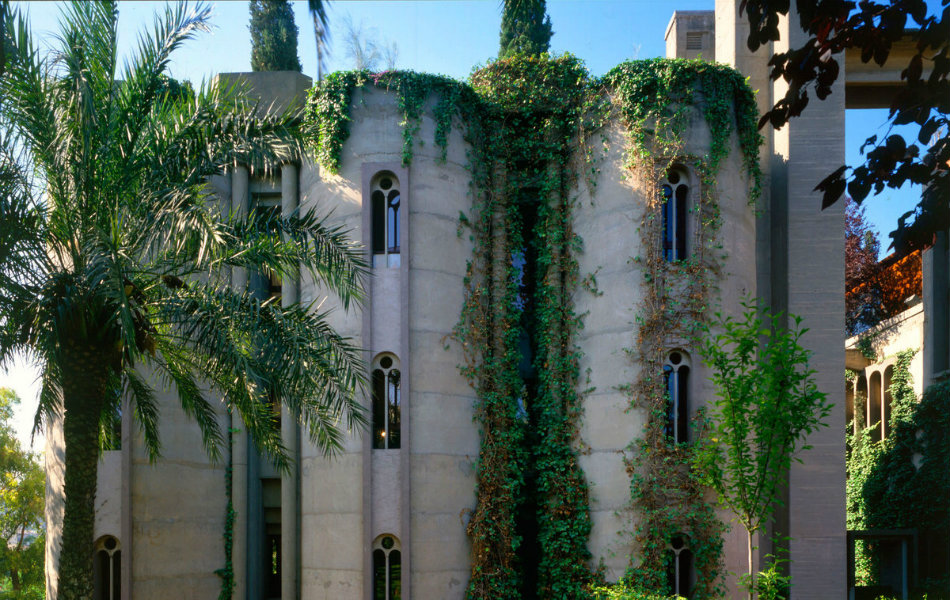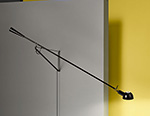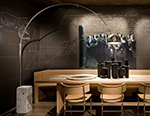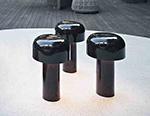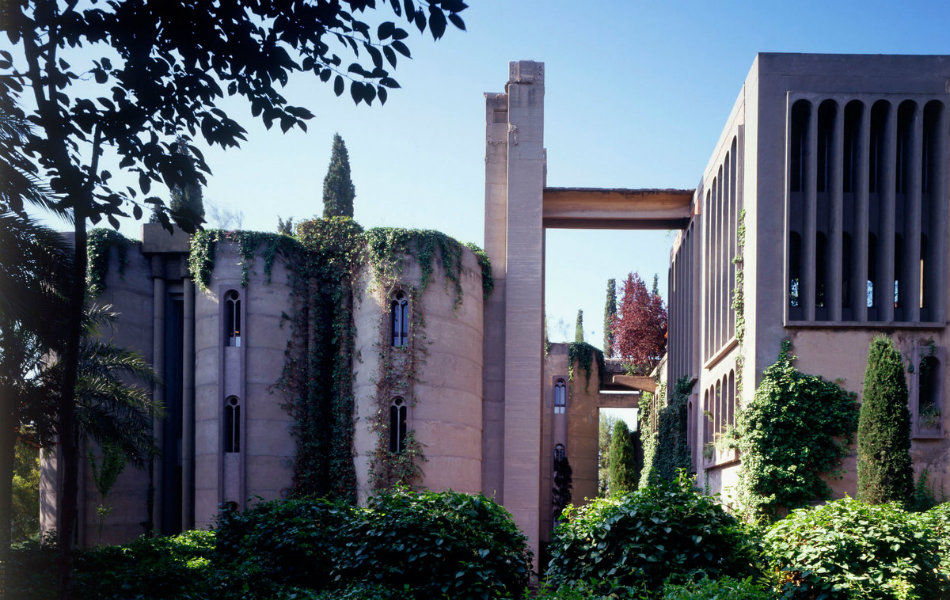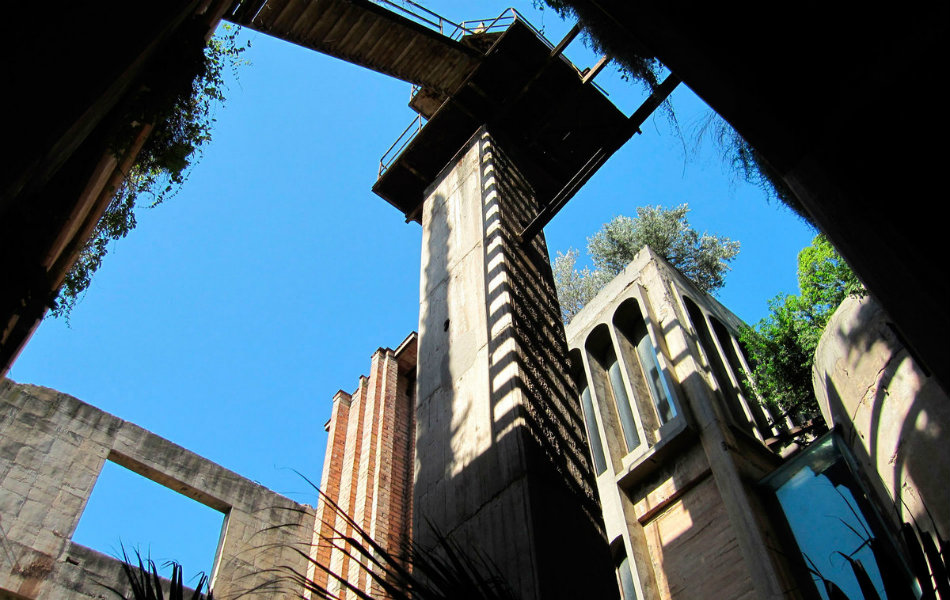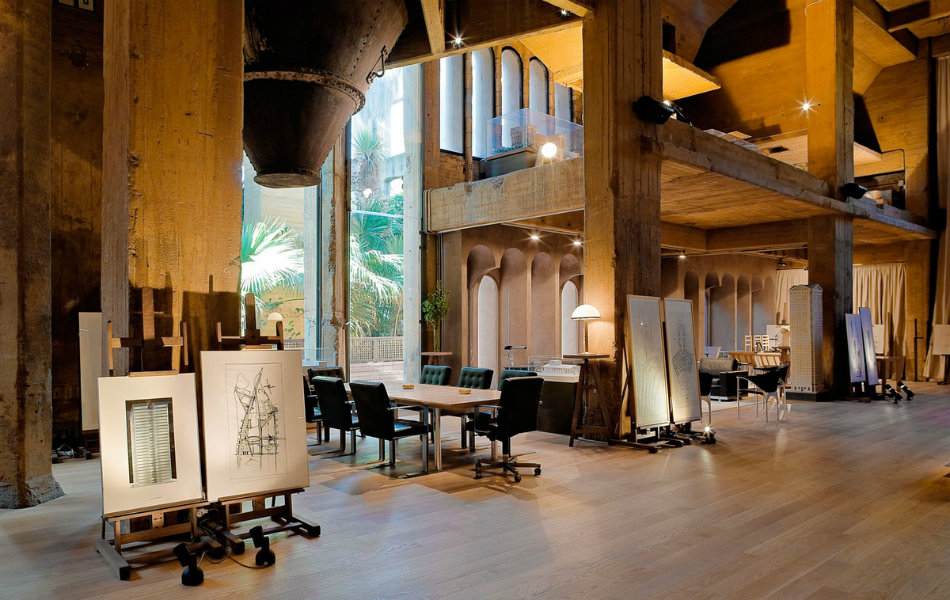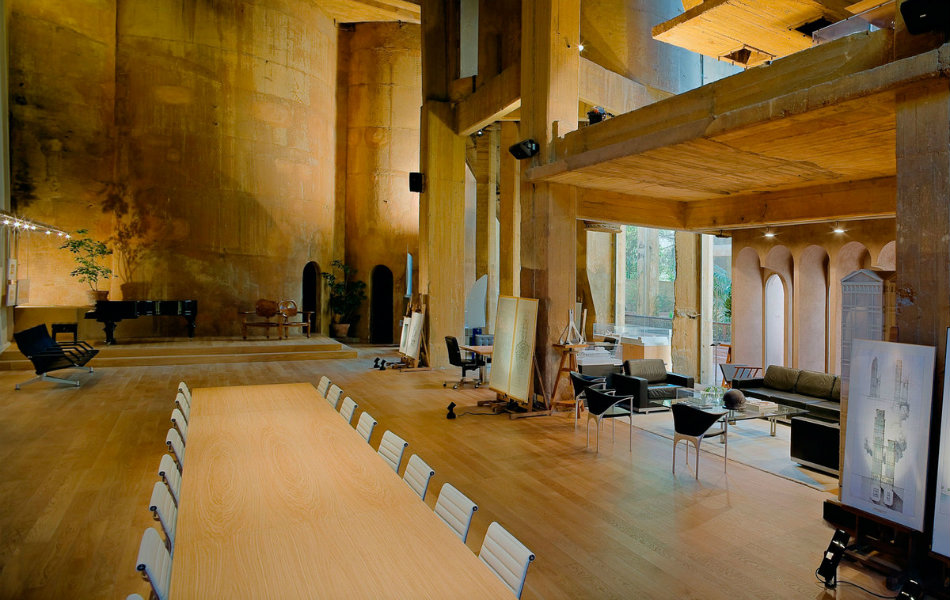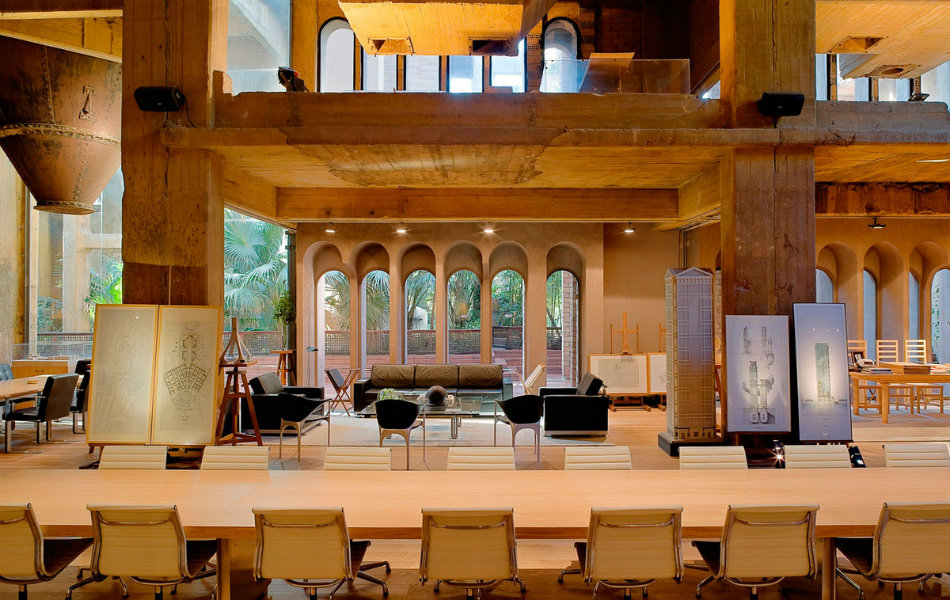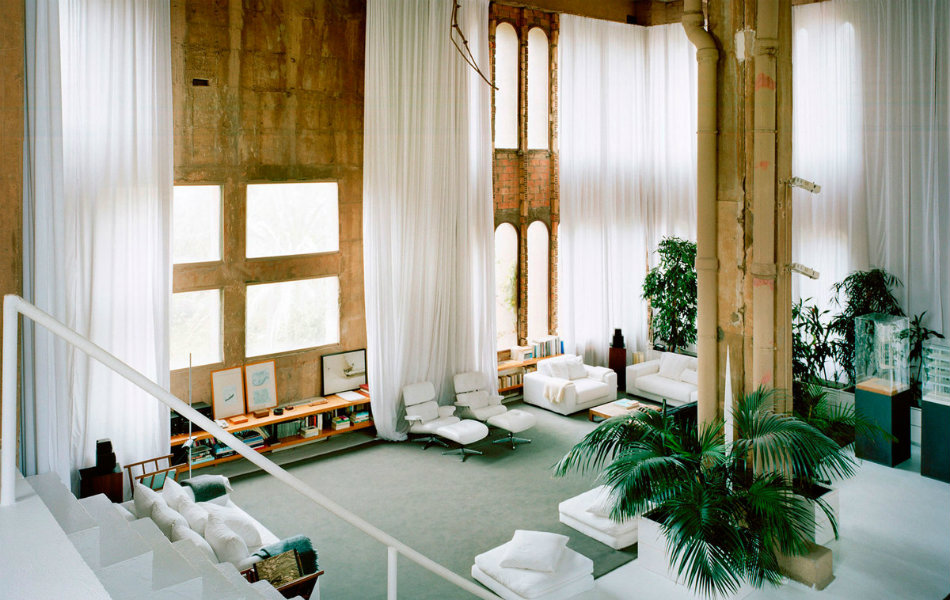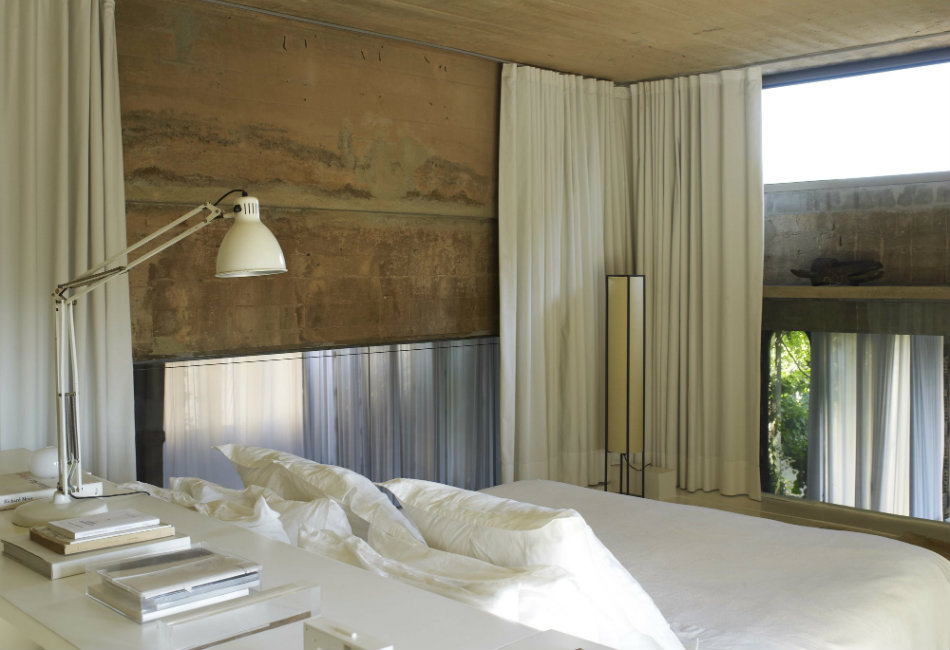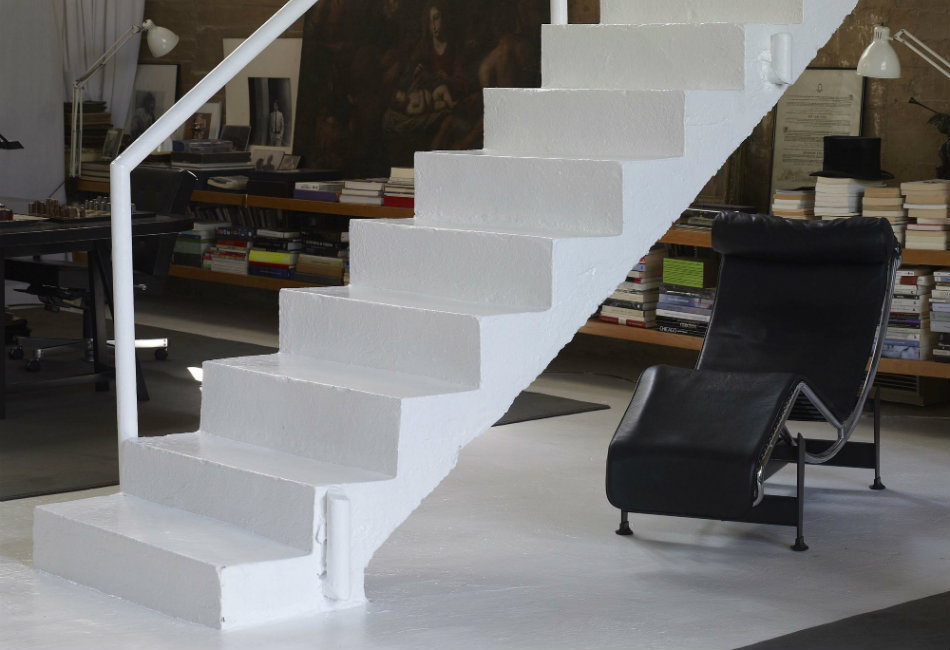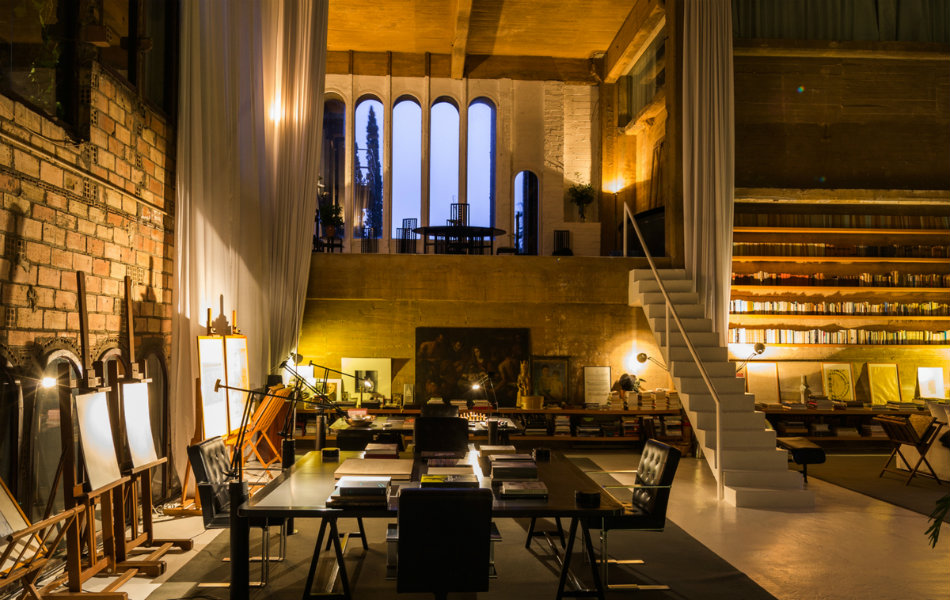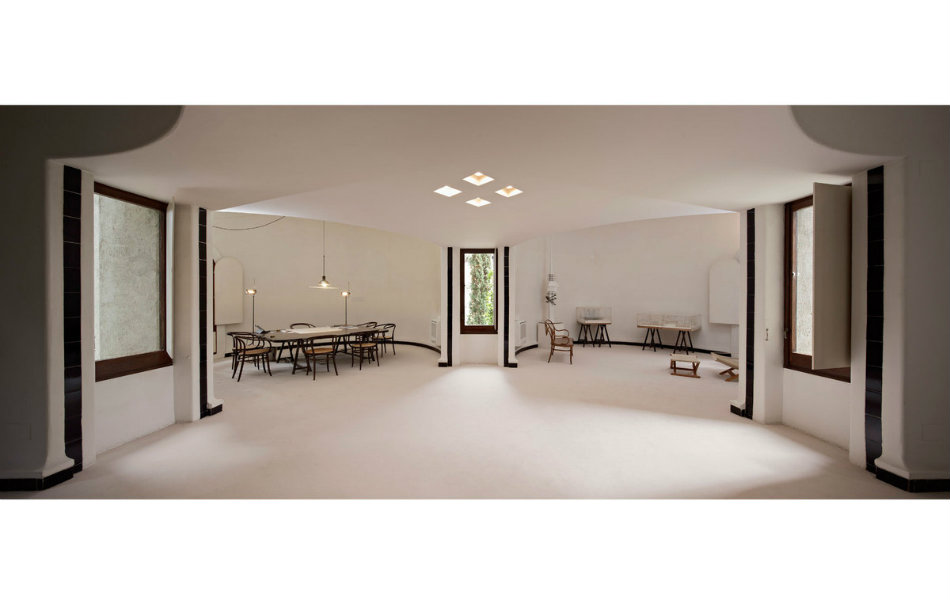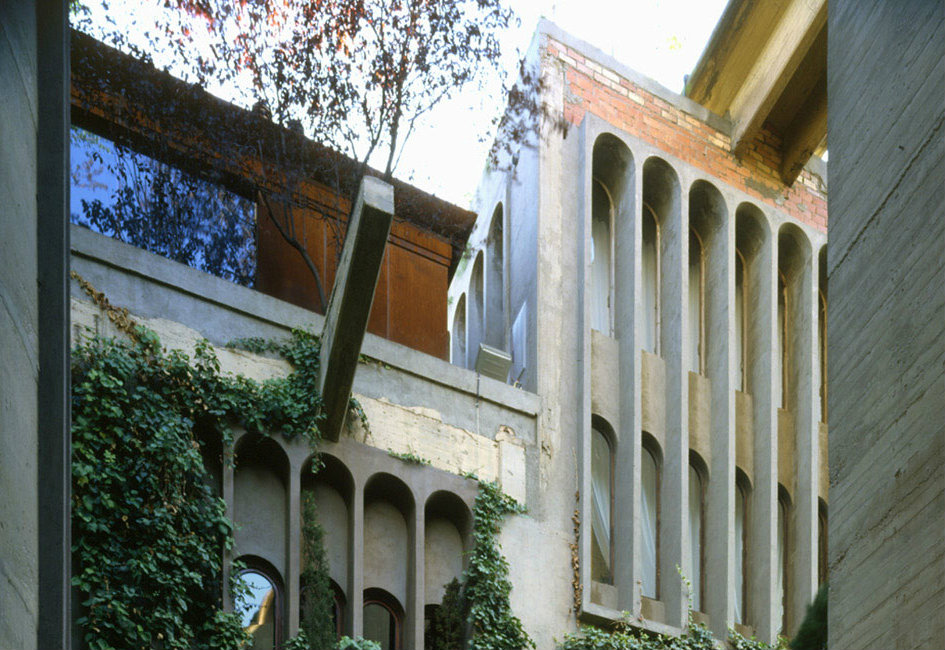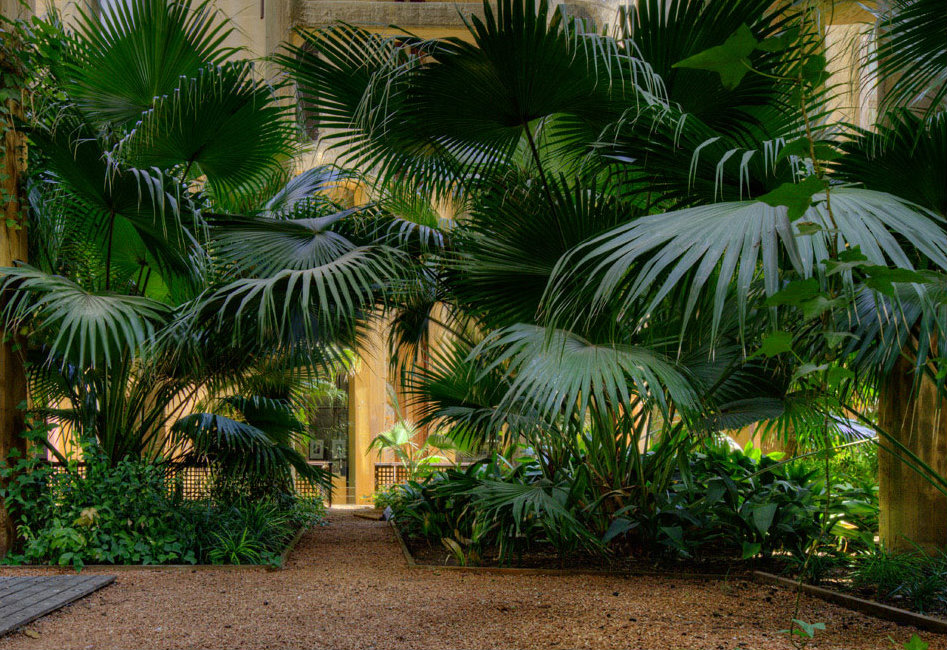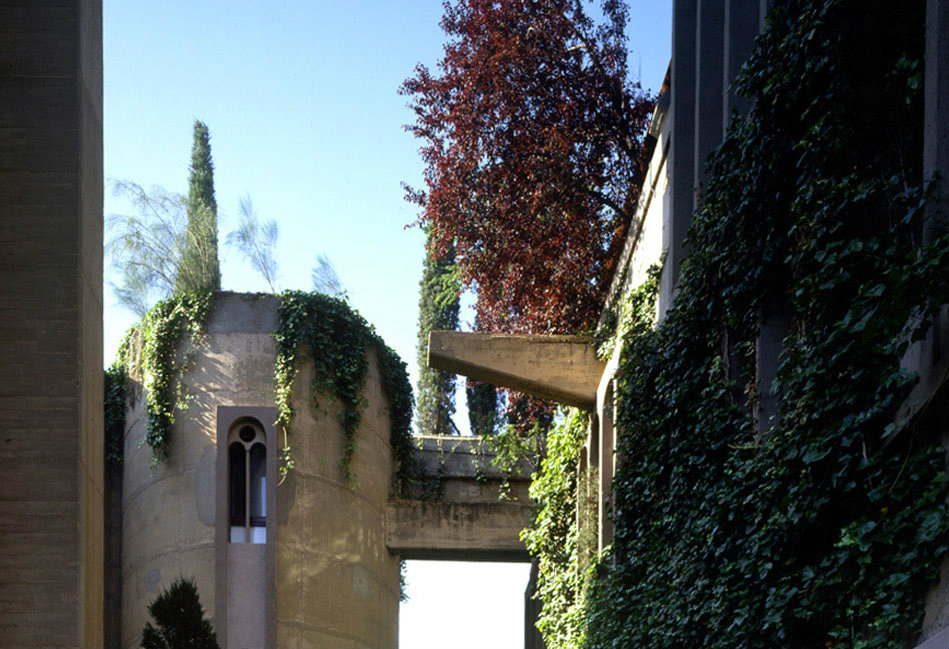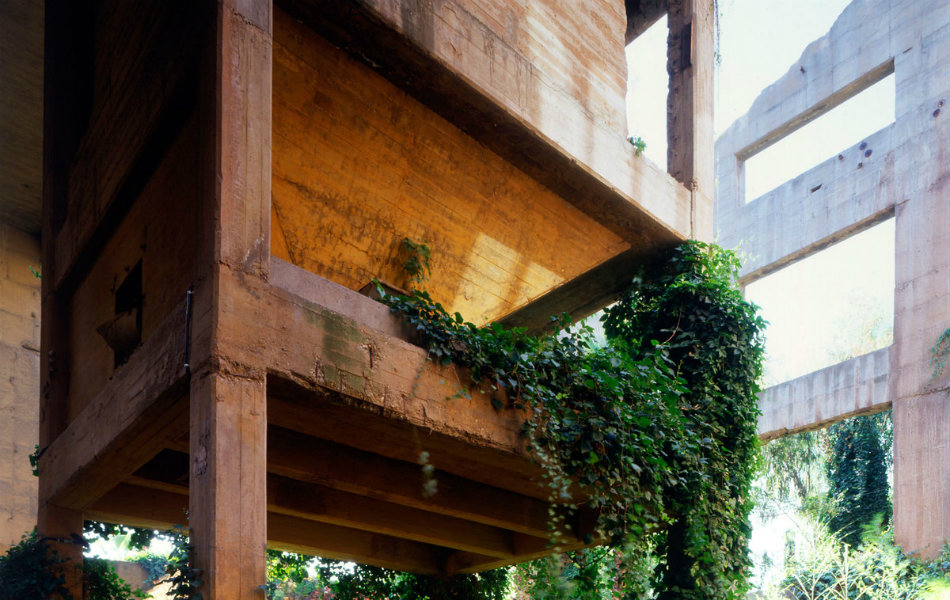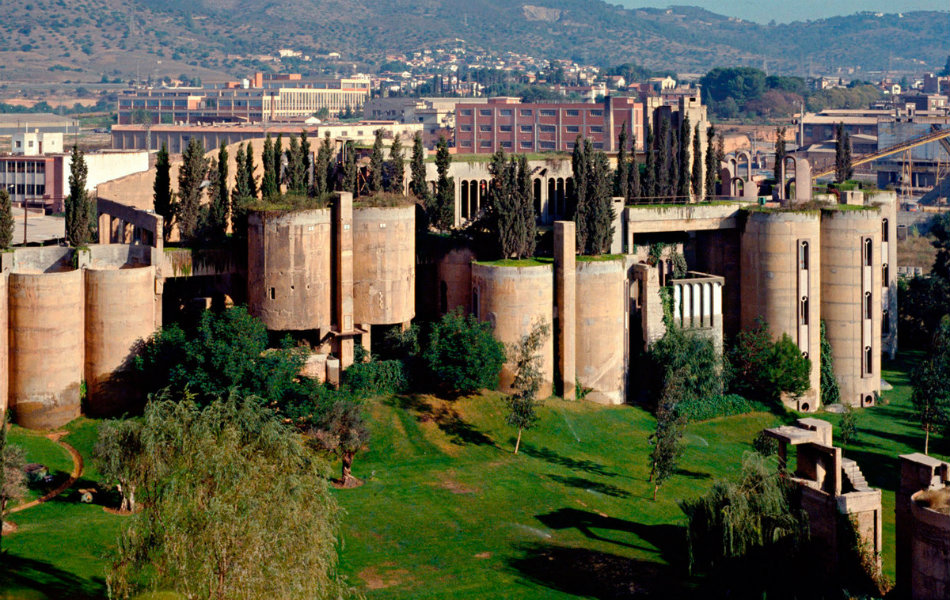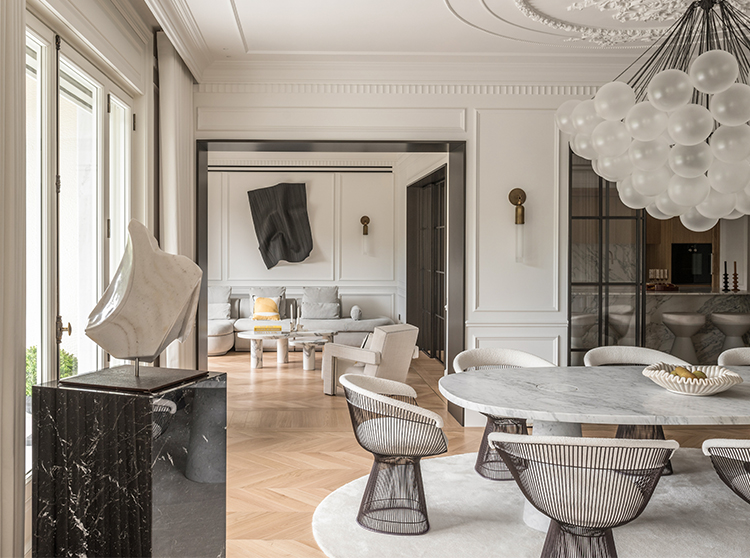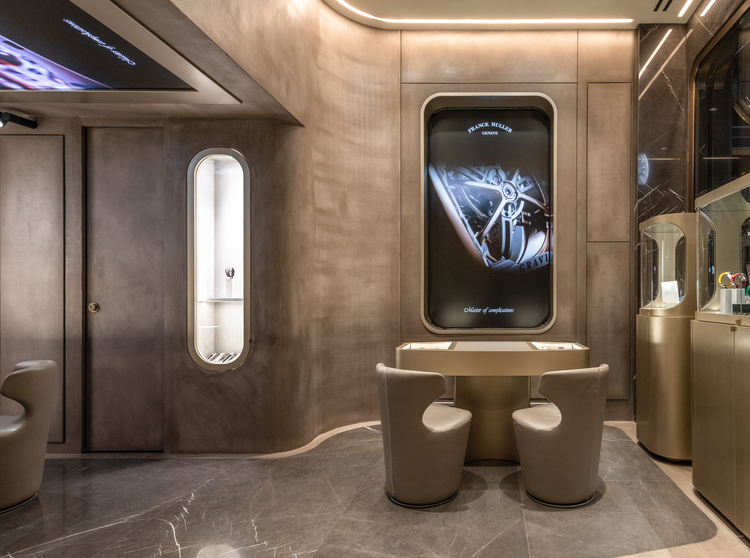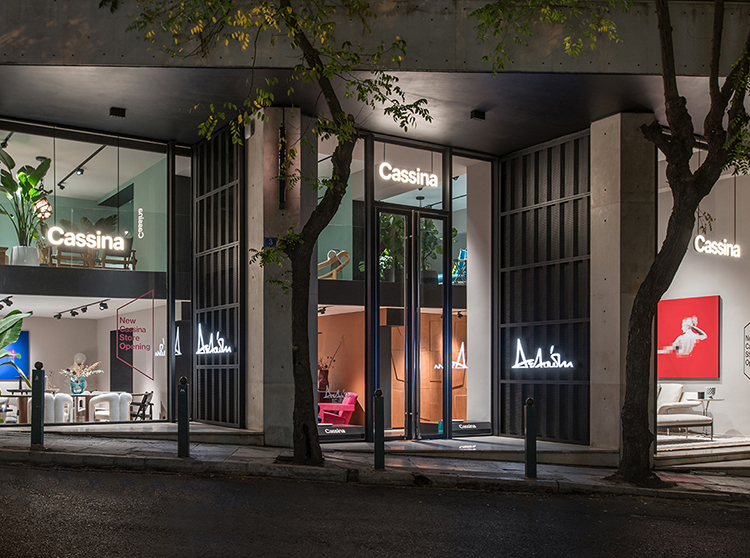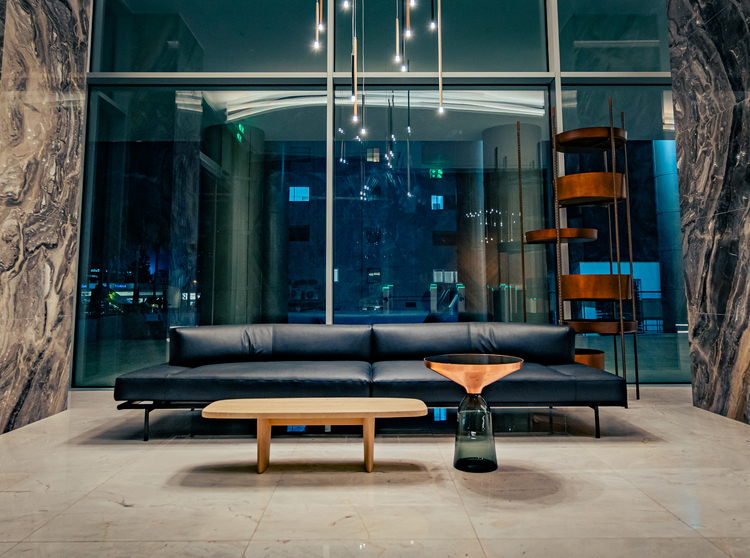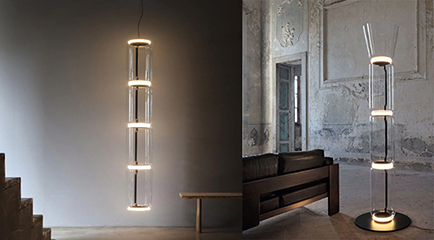In 1973 Ricardo Bofill discovered a cement factory, an industrial complex from the turn of the century, comprising over thirty silos, underground galleries and huge engine rooms. The factory, abandoned and partially in ruins, was a compendium of industrial forms that could be interpreted as brutalist, romantic, surreal …—stairs that climbed to nowhere, mighty reinforced concrete structures that sustained nothing, pieces of iron hanging in the air; huge empty spaces filled with magic.
The transformation process began with demolition, exposing layers of concealed forms, as if the concrete had been sculpted. Once the spaces and volumes had been defined, cleaned of cement and covered with newly-planted greenery, “the factory” was adapted to the new function: architecture head-office. Silos were turned into workshops, a modelling laboratory, archives, a library, and one large industrial space was transformed to what is known as The Cathedral, the venue for subsequent exhibitions, lectures, concerts and a whole range of cultural activities linked to the Architect’s professional life. The complex stands in the midst of gardens of eucalyptus, palms, olive trees and cypresses.
